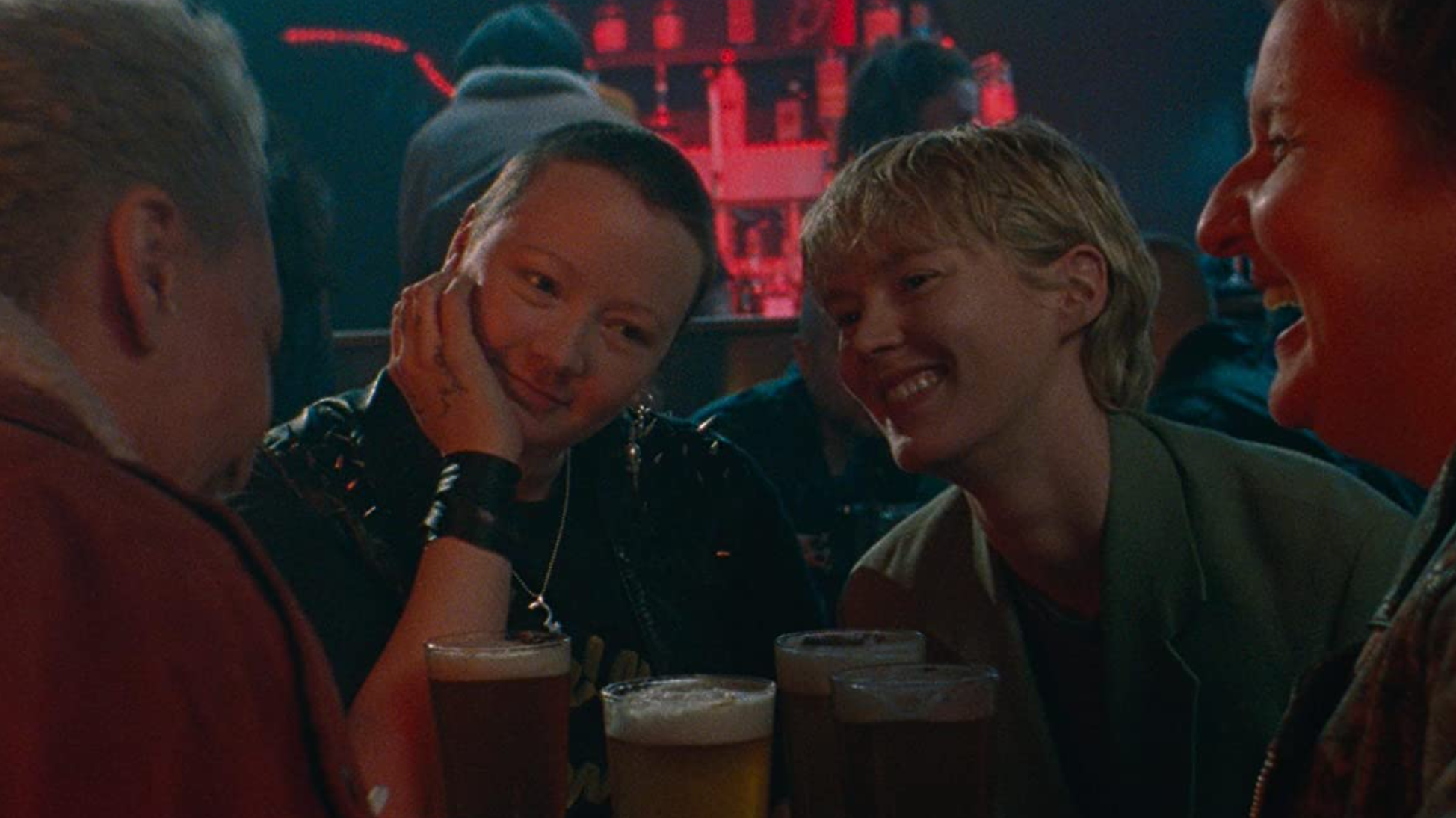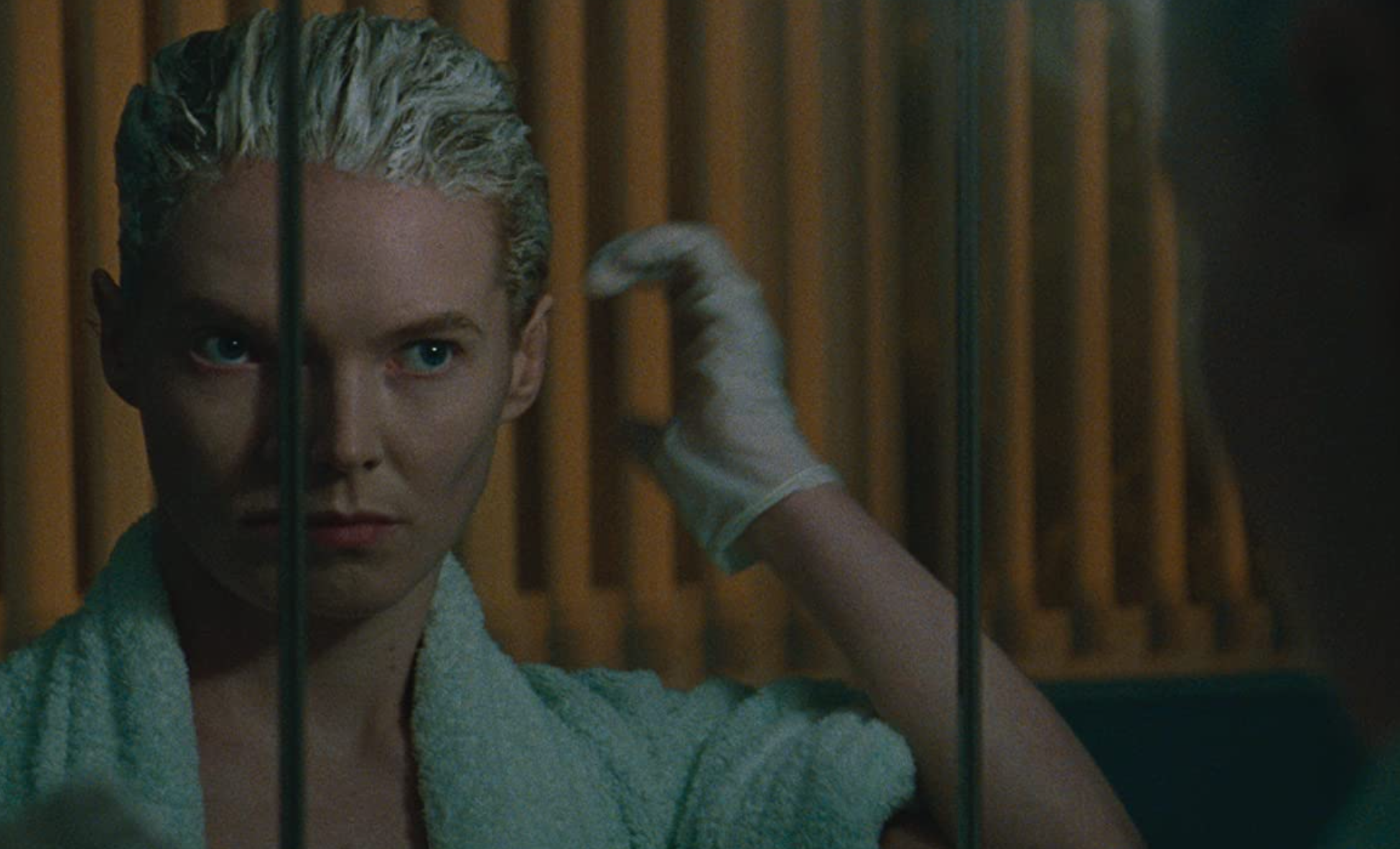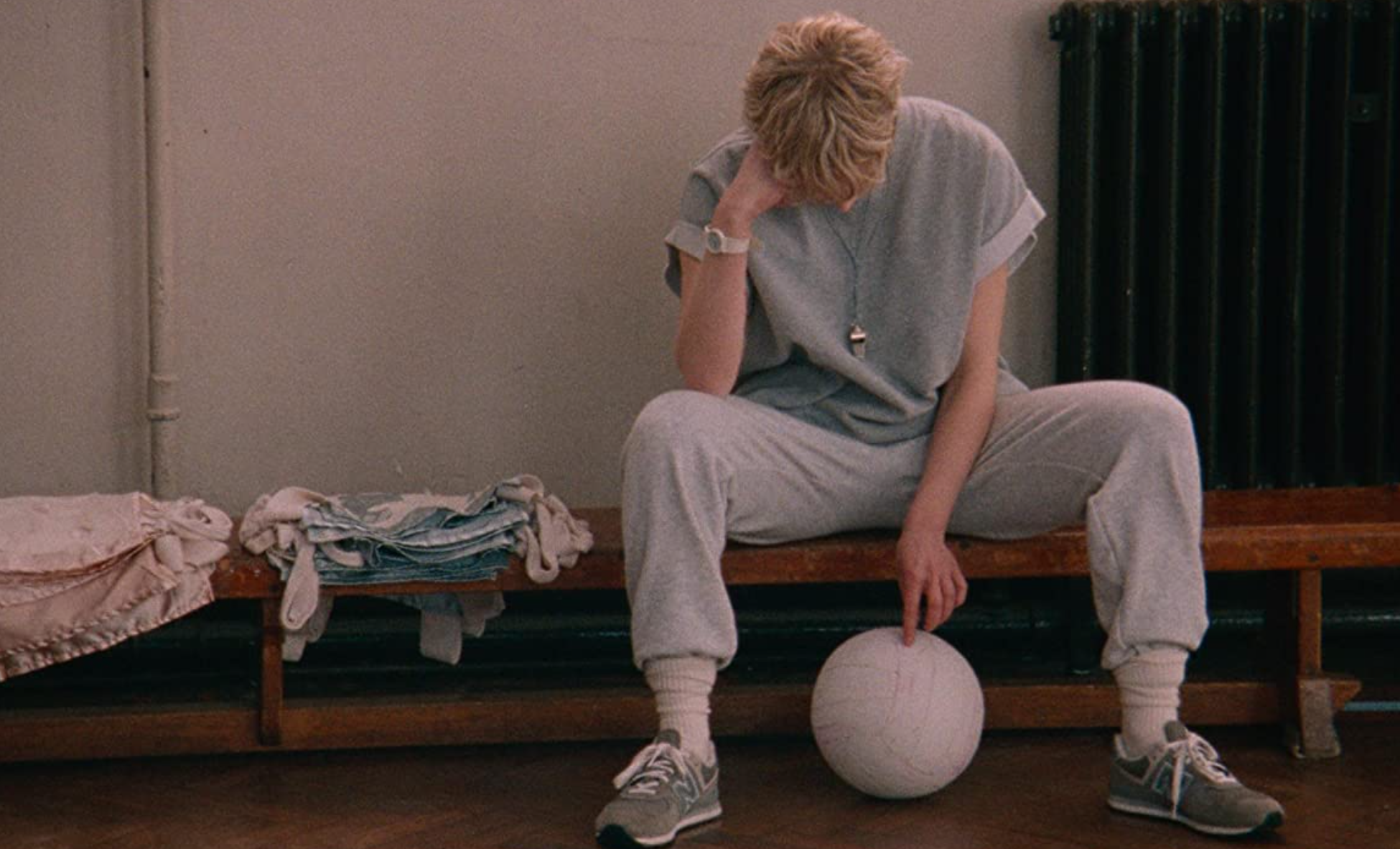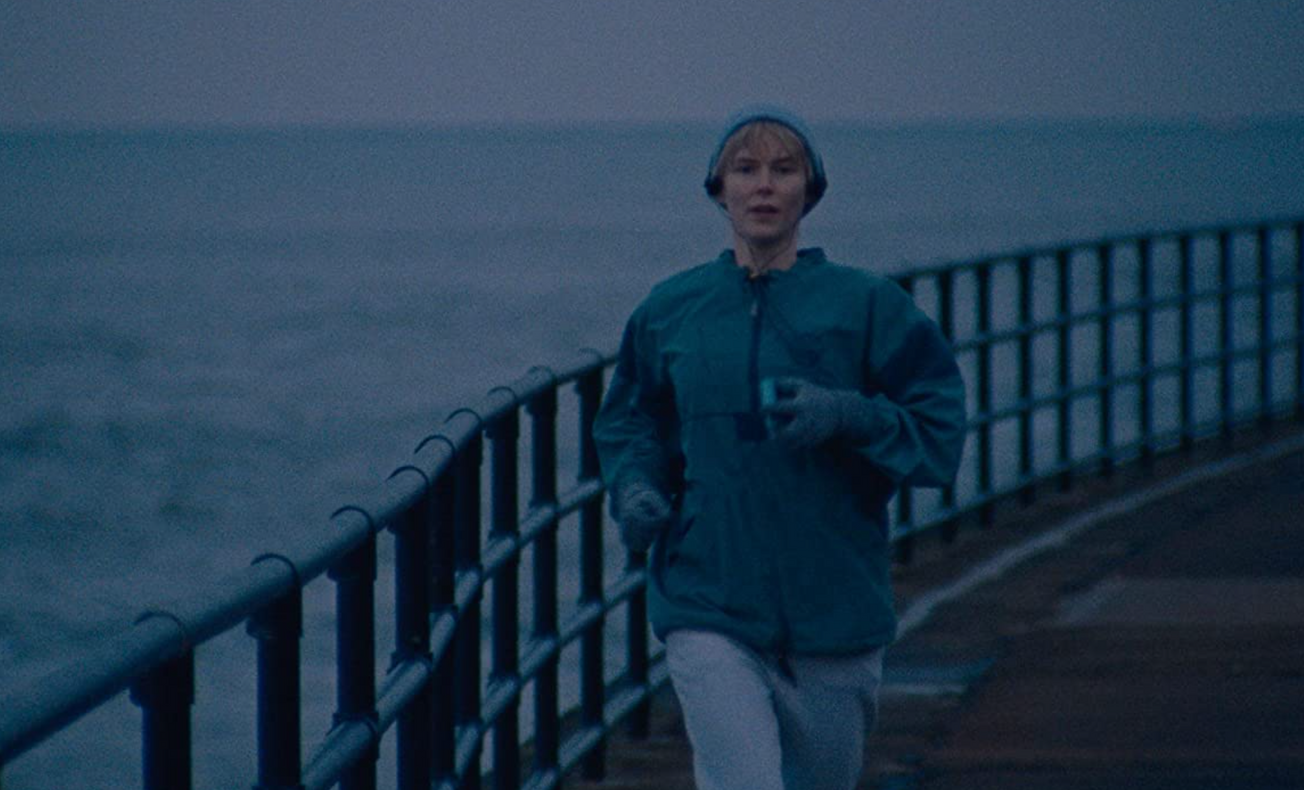By Lara Lippin, Second Year, English
"Can anyone tell me what Fight-or-Flight means?" This is what the term PE teacher Jean, (Rosy McEwan) asks her students to describe at the beginning of the film. A term commonly used to describe a psychological reaction in response to a perceived threat. In 1988, Margaret Thatcher's Section 28 legislation was a monumental threat to the gay community. Legislation that made it illegal for homosexuality to be promoted within the classroom.

Set in 1988, Blue Jean, the debut of writer and director, Georgia Oakley, explores a community coming to terms with Section 28 and the effects this had within the classroom for both teachers and students. The audience sees this blue world through the eyes of Jean, a recently divorced PE teacher struggling to come to terms with her sexuality as a lesbian.
As an act of survival amidst the news of Section 28, Jean tries to conceal her true identity and hides her relationship with her girlfriend Viv (Kerrie Hayes) in an attempt to protect her job and livelihood from a society that seeks to destroy it. It isn't until one of Jean's new PE students, 15-year-old Lois (Lucy Halliday) disrupts this equilibrium Jean tries so hard to protect.
After Jean escapes for a night of freedom at the comfort of a gay bar she regularly visits with Viv and her friends, she bumps into Lois who uncovers the double life Jean has been living. Unlike Jean, Lois is open about her sexuality despite the bullying she experiences at school, which is something Jean seems to envy.

Rosy McEwan's performance perfectly encapsulates the anxiety-ridden individual trying to come to terms with their self-identity. Throughout the film, the viewer’s opinion of Jean fluctuates as appears both likeable at some points and dislikeable at others, specifically when she decides to throw Lois and her reputation under the bus in order to protect her own sexuality amongst the school's community.
McEwan's melancholy performance is complimented beautifully through Victor Sequin's beautiful cinematography, the connection suggested in the title itself, Blue Jean. Each shot captures a different hue of blue, suggesting the looming presence of Section 28 in Jean's life.
Interestingly, lighter tones of blue are attached to the school which emphasises one of the film's main messages. The education system is a breeding ground for hate if the wrong message is taught. Alongside the nostalgic cinematography, the '80s upbeat pop anthems scattered amidst moments of deep reflection, express the duality of Jean's persona. A duality that everyone can relate to.

Although the dialogue seems slightly underdeveloped, specifically at times between Jean and Viv, Blue Jean is a remarkable debut and powerful piece of art that explores the tumultuous journey of self-discovery in the face of oppression. Oakley reminds us of the importance of teaching the younger generations that your identity is something to be proud of no matter who you love, a message that is still very much relative in today's society.
Featured Image: IMDB and Blue Jean Productions Ltd, British Broadcasting Corporation, The British Film Institute 2022
Do you think the themes explored in this film are underrepresented?









